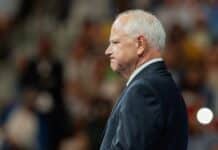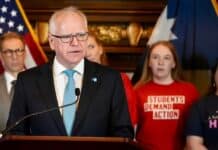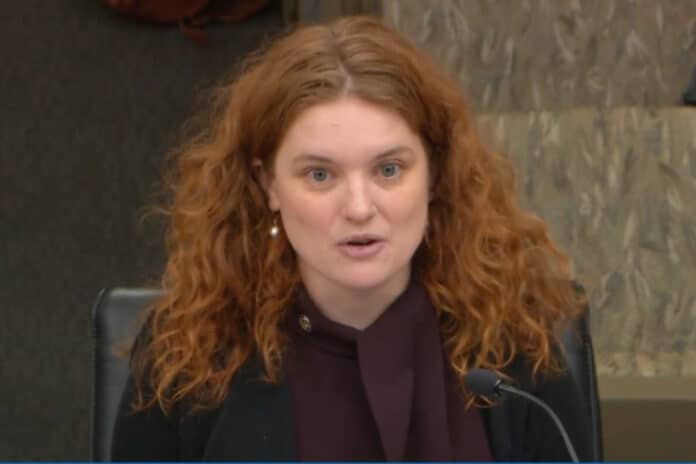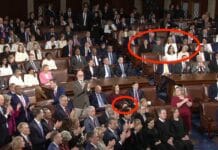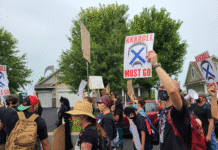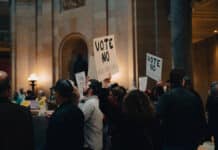Just a few years before she ran for the Minnesota Legislature, Ginny Klevorn lived in Brazil. During a House committee hearing on Tuesday she recalled fondly when the city of Sao Paulo, with a population of more than 12 million, banned retailers from distributing free plastic bags to customers in 2015.
“Sao Paulo is a massive city … and the grocery stores still functioned,” said Klevorn, a third-term DFL House member who lives in Plymouth. She chairs the House State and Local Government Committee that heard a bill on Tuesday that would return power to cities and counties to outright ban retailers from using plastic bags.
“And people knew they needed to bring something, a cardboard box, a market basket, something to bring their groceries home,” Klevorn continued.
HF3345 is sponsored by Rep. Sydney Jordan, DFL-Minneapolis. It would repeal a 2017 law that preempts local governments from banning retailers from distributing bags to customers. It was laid over for possible inclusion in an omnibus bill, but has 13 DFL co-sponsors in the House and five in the Senate.
That statute took effect seven years ago after Republican majorities in the House and Senate passed a budget bill that included the provision. DFL Gov. Mark Dayton signed the bill, even as he lamented the bag ban preemption.
The law went into effect right before the city of Minneapolis was set to ban plastic bags. Jordan said the impetus for her bill was to give that ability back to cities like Minneapolis, whose resident taxpayers often bear the biggest cost burden for waste. As a work around, a handful of city councils in recent years, including Minneapolis, Duluth and Edina, have passed ordinances that impose small fees on customers who opt to take a plastic bag for their goods.
“[Plastic bags] cram up our lakes and our roadways and further damage our environment,” said Jordan, a third-term House member whose professional background includes stints as a labor organizer and environmental activist. “Cities and counties are looking for more tools to deal with waste. [This bill] is one tool we can give them by simply getting out of their way.”
Lobbyists weigh in
While the bill is backed by several environmental advocacy groups along with the Association of Metropolitan Municipalities, it’s opposed by organizations that represent hundreds of retailers across the state. Those critics told legislators that the 2017 preemption statute on local plastic bag bans was important so that all stakeholders can be brought to the table for a more uniform solution.
“A repeal should only be done when a statewide approach is adopted,” said Bruce Nustad, president of the Minnesota Retailers Association. “We believe decisions of this magnitude, impacting retailers, customers, suppliers and many others, should be done holistically at the statewide level, rather than through local ordinances.”
Grocery stores are often the most thought-of point where single-use plastic bags are distributed, but the public doesn’t know that those businesses are also the biggest promoters of single-use plastic recycling, said Jamie Pfuhl, president for the Minnesota Grocers Association, which represents more than 1,200 grocery storefronts across the state.
“We take our role as an environmental steward seriously,” Pfuhl told legislators during the Tuesday hearing on the preemption repeal bill. “We’re dedicated to aggressive waste reduction, and millions of pounds of plastic are recycled at your local grocers every year.”
Pfuhl said that plastic bag bans have been shown to have a “minuscule impact on reducing waste and create a multitude of unintended consequences.”
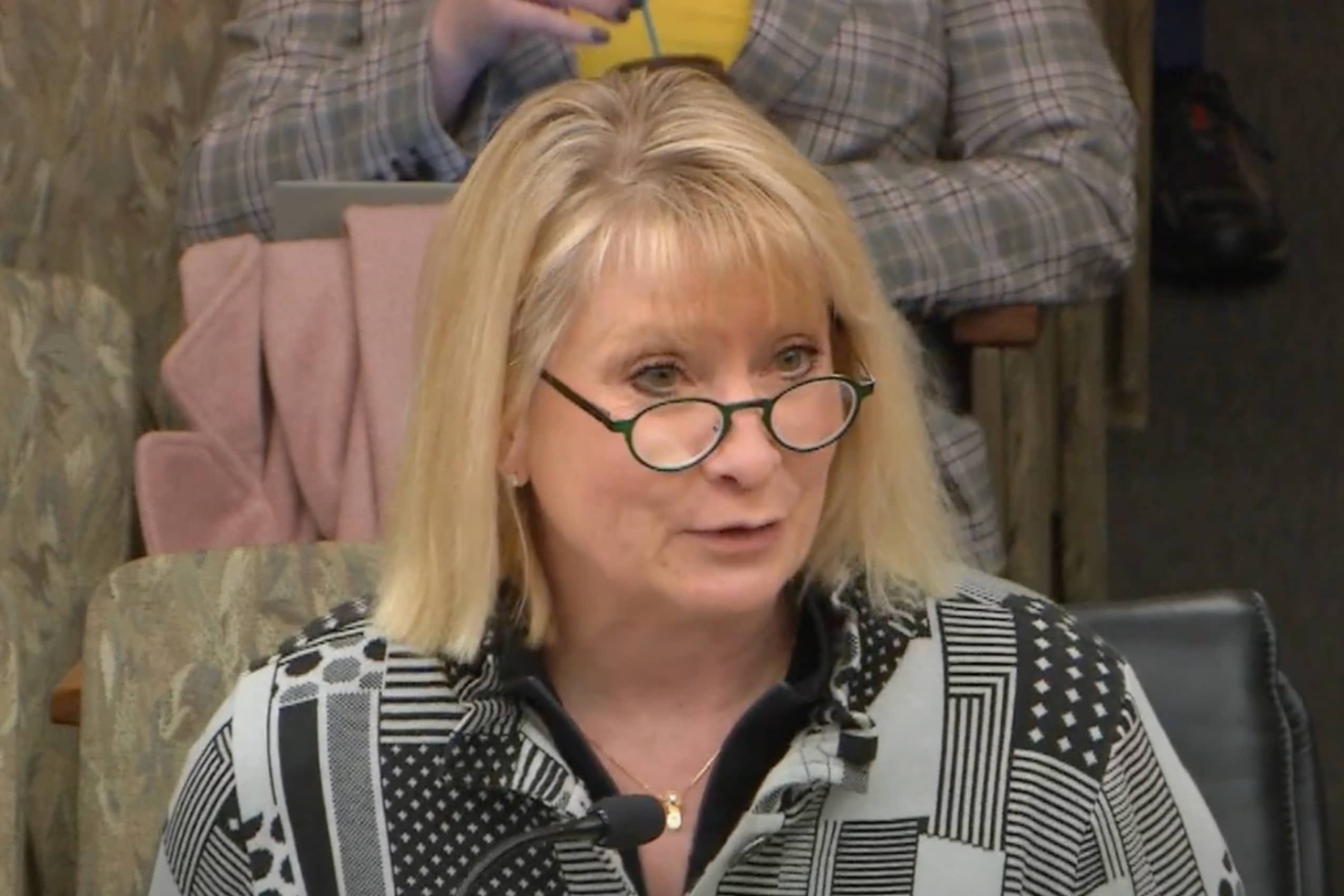
“Our number-one concern as an industry is the effect that a patchwork of ordinances will have on our customers,” Pfuhl continued. “Operating in an environment of varying local laws will cause customers confusion, [and] has the potential to have an inequitable effect on those who do not have the same mobility or access as others within our communities.”
That answer wasn’t satisfying to other lobbyists on hand to testify in support of the bill.
“Opponents (of HF3345) will tell you it will lead to chaos and confusion,” said Avonna Starck, state director for Clean Water Action, an environmental advocacy organization that in 2022 endorsed more than four dozen Democrats for the Minnesota Legislature and zero Republicans. “They’ll claim that local control will confuse consumers who won’t understand how to shop, and they’ll paint a picture of an exaggerated chaos caused by a simple plastic bag.”
“People are really starting to accept that they bring reusable bags with them when they go to the grocery store,” Starck added.
Eggs rolls and eclairs
But Rep. Jim Joy, R-Hawley, who owns a small business and was once a mayor and city council member, said he doesn’t believe local governments are equipped to understand the full impact that bag bans would have on different facets of retail businesses and then customers, which would put neighboring municipalities and counties on uneven playing fields.
“As a retailer myself, if I order egg rolls and the manufacturer sends little bags with it to sell to my customers, or if they’re buying muffins or donuts and they’re putting them in bags to carry them to the counter, how are we going to define this if we give this to local control?” Joy asked the bill author.
“I have faith in our county commissioners and city council members who represent fewer people than we do to be able to talk to the constituencies and the businesses to craft an ordinance for their community,” Jordan said.
Hank Long
Hank Long is a journalism and communications professional whose writing career includes coverage of the Minnesota legislature, city and county governments and the commercial real estate industry. Hank received his undergraduate degree at the University of Minnesota, where he studied journalism, and his law degree at the University of St. Thomas. The Minnesota native lives in the Twin Cities with his wife and four children. His dream is to be around when the Vikings win the Super Bowl.

